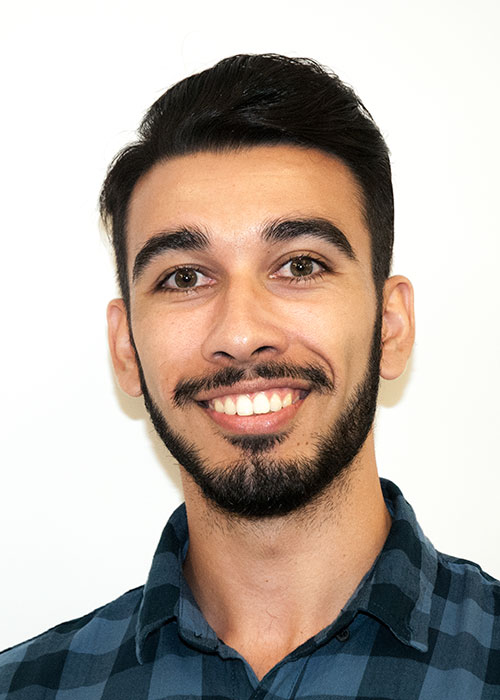Filipe Fernandes Duarte Student Profile
In October of 2012 I moved to Britain from Portugal to start my degree in Biochemistry with Genetics at the University of Lancaster. This course integrated modules from the biological and natural sciences, exposing me to a wide range of subjects, from organic and inorganic chemistry to molecular and cellular biology. Over three years I was taught the basics and fundamentals of biochemistry and genetics, but was also introduced to the cutting edge research that is carried out at Lancaster. This gave me a first glimpse into the world of academia and scientific research. My undergraduate projects were in neuroscience and genetics where I explored gene expression in Caco-2 cells, and dived into the topic of memory formation and consolidation. After my undergraduate degree I secured a position in the MSc Biomedicine programme, also at Lancaster University, where I focused my research on the genetic risk factors of schizophrenia and the metabolic effects these have on the different regions of the brain.
When I finally finished my master’s degree I sought to start a PhD, however I was still not certain of which area would be ideal for me, as such, I applied for the IBR MRC-DTP as it allowed me to complete two different laboratory projects before choosing a PhD project. In my eyes this seemed the perfect way to make the most informed decision possible before diving into a PhD. In addition, I was very interested in this programme due to its interdisciplinary nature as I am a firm believer that the best scientists are the ones that can approach their research from many different angles, optimising, this way, their chances of success. The chemistry, physics, statistics and programming to which we were exposed during the taught part of this master’s degree certainly brings out the full potential of this interdisciplinary degree.
I am spending the summer term working with Professor Andrew Dove from the Chemistry Department researching degradation rates of synthetic polymers for the long term delivery of various drugs. During the summer holidays I will be working with Dr Andrew Bowman on the optimization of RAPID-release technology in order to allow for a better temporal resolution on the research of chromatin assembly machinery.
I have had the opportunity to make friends with a lot of people in this course, both people that integrated IBR at the same time as me, and people that entered the programme in previous years. We not only support each other workwise, but maintain a very good relationship outside of the IBR walls as well.
I look forward to welcoming you into our IBR family and I hope you have as much fun as I do!
MRC DTP in Interdisciplinary Biomedical Research
MSc Interdisciplinary Biomedical Research
Overview of Filipe's MSc Interdisciplinary Biomedical Research Year
| Term 1 | |
| Taught modules |
CH920 Cellular Systems and Biomolecules I BS930 Cellular Systems and Biomolecules II CH922 Microscopy and Imaging CH923 Statistics for Data Analysis LF903 Quantiative Skills for System Biology |
| Term 2 | |
| Taught modules |
CH926 Molecular Modelling MD978 Research Topics in Interdisciplinary Biomedical Research MD991 Physical Biology of the Cell |
| Across the academic year | |
| Portfolio | CH948 Warwick Interdisciplinary Transferable Skills |
| Term 3 | |
| Research project 1 | Biodegradable and biocompatible implants for drug delivery applications (supervisor: Prof. Andrew Dove, Chemistry) |
| Summer vacation | |
| Research project 2 | Ultra-rapid pulse-labelling for observation of nuclear dynamics in living cells (supervisor: Dr Andrew Bowman, WMS) |

